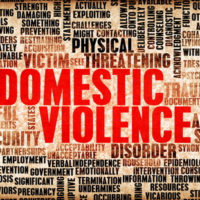Protective Orders in Virginia

Under Virginia law, a protective order is a legal mechanism designed to protect victims of domestic violence, sexual assault, and other forms of aggression. These orders exist to protect the health and safety of victims who are at risk of further violence. If the abuser continues to assault the victim, then a Virginia court may issue a protective order and prohibit any further contact. If the abuser violates a protective order in Virginia, there are severe criminal penalties.
How Does a Protective Order Help Victims?
In granting a protective order, a Virginia order may:
- Forbid any further acts of violence — or threats of violence — that may result in injury to a person or damage to property;
- Bar the abuser from contacting the victim or the victim’s family members;
- Award ownership and possession of a pet or companion animal; and
- Grant any other relief that is necessary to protect the victim as well as prevent further violence or criminal conduct.
What are the Different Types of Protective Orders?
There are three different types of protective orders in Virginia. While the features of each order remain largely the same, as outlined above, the duration changes based on the type of order.
- Emergency Protective Orders under Code of Virginia Section 19.2-152.8 last for three days or until the next available court session;
- Preliminary Protective Orders under Code of Virginia Section 19.2-152.9 last for 15 days or until a scheduled court hearing; and
- Protective Orders under Code of Virginia Section 19.2-152.10 may last for any period up to two years.
In order to extend a protective order, the victim must obtain permission from the appropriate Virginia court.
What is the Penalty for Violating a Protective Order?
The penalties for violation of a protective order appear under Code of Virginia Section 18.2-60.4. In most cases, a single violation of a protective order results in Class 1 misdemeanor charges. The normal penalty structure for a Class 1 misdemeanor in Virginia includes a 12-month jail sentence and fines up to $2,500. A second violation within five years remains a Class 1 misdemeanor. But the mandatory minimum sentence increases to 60 days in jail.
Under certain circumstances, violation of a protective order can become a felony crime, including:
- Subsequent Violations — If a person violates protective orders three or more times within a 20-year period, it is a Class 6 felony in Virginia;
- Deadly Weapons — If a person violates a protective order while using a firearm or other deadly weapon, it is a Class 6 felony in Virginia; and
- Bodily Injuries — If a person violates a protective order and injuries the victim in the process, it is a Class 6 felony in Virginia.
The normal penalty structure for a Class 6 felony in Virginia includes a 60-month prison sentence and fines up to $2,500.
Do You Need Legal Help?
If you have legal questions about protective orders in Virginia, it is important that you speak with a knowledgeable criminal defense attorney. The attorneys at Simms Showers LLP, servicing Leesburg, Winchester, Fairfax, and Manassas, have numerous years of legal experience in Virginia criminal defense, including defense against protective orders. If you need legal help with criminal defense, contact us today for a free initial consultation.
